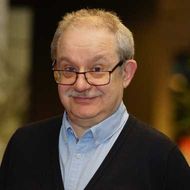- A
- A
- A
- АБB
- АБB
- АБB
- А
- А
- А
- А
- А
- Национальный исследовательский университет «Высшая школа экономики»
- Факультет социальных наук
- Департамент социологии
- Новости
- IT’S EXCITING TO SEE THINGS CHANGE
-
Подразделения
- Кафедры
- Базовые кафедры
-
Образование
- Бакалавриат
-
Магистратура
-
- Магистерская программа «Комплексный социальный анализ»
- Магистерская программа «Социальный анализ рынков на цифровых и опросных данных»
- Магистерская программа «Социология публичной сферы и цифровая аналитика»
- Магистерская программа «Сравнительные социальные исследования»
- Магистерская программа «Демография»
-
- Аспирантура
- Открытые онлайн-курсы
- Школа маркетинговых исследований
-
Департамент
- О департаменте
- Научная деятельность
- Журналы
- Методические материалы
- Сотрудники
Адрес: 101000, Москва,
ул. Мясницкая, д. 11.
Телефон:
8 (495) 772-95-90*12349
E-mail: izangieva@hse.ru
Наша миссия – научить видеть, думать и действовать. Видеть – проблемы современного общества; изменения, происходящие в его социальной структуре. Думать – свободно, доказательно, открыто. Действовать – на благо обществу, осуществляя свои профессиональные проекты. Для этого мы стремимся к совершенству в преподавании и исследовательской деятельности, создавая атмосферу, благоприятную для обмена опытом и знаниями между преподавателями и студентами.
Демьянова А. В., Лола И. С., Андреев К. Д. и др.
ИСИЭЗ НИУ ВШЭ, 2025.
В печати
Мониторинг общественного мнения: Экономические и социальные перемены. 2025.
Стрельцова Е. А., Кузина Л. С., Полякова В. В. и др.
В кн.: Жизнь онлайн: цифровая трансформация российского общества. М.: Издательский дом НИУ ВШЭ, 2025. Гл. 7. С. 83-93.

IT’S EXCITING TO SEE THINGS CHANGE
How come you chose HSE?
When I was back in Bremen and I got an advertisement in my inbox, I was honestly ready to dismiss it. But I looked at the Higher School of Economics, and I translated the payment that was offered into euros and saw that it would be competitive with what I would be making in Germany if I stayed there. I also saw the low teaching load and the focus on research, which is very important. All three of these aspects together were opposite to my preconceptions of what academia in Russia is like.
You have been here for almost 2,5 years, how can you estimate your achievements?
It was actually what I expected in very good ways. I think I got what the ad promised and what I was expecting, meaning really strong focus on research in the last few years. In my previous job I was overwhelmed by administration, and here I am overwhelmed by research. And that is what I prefer.As to the achievements, I just published a book based on my dissertation and launched some other research projects. For example, I had a project with the Academic Fund called Commodification of Intimacy, and we were comparing Moscow, Kiev, and Minsk in terms of how everyday dating becomes more economized, and how people begin to calculate and look to date for profit. It’s about how normal everyday relationships become more materialized and how people try to milk each other for more. In a total of 2 years I had perhaps as many as 10 students that were working with me on this, and we had an article published last December internationally and another one published in the Russian journal “Economicheskaya Sotsiologiya”. There are 3 more written with the students, which are still in the oven; we’re working on them and trying to get them done by the end of the year.Involving students into my research has a lot of advantages. You can always arrange it as an umbrella project, meaning everyone has their own little piece, and then they come together in the end into a big project. Or you can have one unified project that works in stages. I prefer the second approach. It is a lot more work, because as project head you have to make sure that each stage is done in a particular way. It also means that we work together more intensively. The students have a major role in gathering all the data and running certain events. Something fun that we did and are still scientifically analyzing it is a speed dating event. We ran this in September of 2011. We cooperated with a local Moscow speed dating company, 13 women and 12 men came and we had tape recorders at each table (of course, everyone signed up & agreed to this). We are now in the process of analyzing the conversations, how people were dressed, the surveys they filled out, and connecting this information to who chooses who. The students loved the part of arranging the event and sitting in the corners there, observing everyone. Honestly, I’ve been extremely busy and this was really good, I have done what I was hoping to.
Is getting students involved in the research here different?
Apart from the cultural differences, it is easier to get students here interested in projects. That’s absolutely the case. Every time I sent out an announcement for one project or another, I always get a lot of responses and CVs that are sent in. The trickier part is actually managing the project once the students are in. The students are really interested in gaining experience, getting data and learning to analyze it, and this is one of the advantages of working here.
You spoke of research, what about your teaching experience?
My teaching experience has been pretty good as well. I teach “Life Course” sociology at the BA level. I give lectures and seminars are a part of the course. It is a big research field in Germany, Northern Europe and the United States, but in Russia it is relatively small. Only few faculty members and students here had been working in this field. I think it might have been the first time it was explicitly taught in Russia. The students always come wondering what kind of exotic subject this is, and I try to get them interested in something different than what they’ve learned. It seems to me that HSE has been able to draw some of the best students all over Russia and this is really impressive. Before, I was mainly teaching in Germany. The academic culture there is very different. Due to the movement in 1968 that reversed some of the traditionalism and authority in German universities, students are really used to expressing their opinion, debating and arguing with the professor. There is a lot of discussion; students are expected to critique you.Here it seems to me that people are not used to that. They love it, they love the expectation that they should be talking more on the subject in class. Not all of them are used to it, but I found they jump for that opportunity. Other differences include debating style. Sometimes the students were overly-eager in debates, and were very forcefully making their point. Maybe, they weren’t always as diplomatic as they would be expected to be in Germany.
What are the advantages and disadvantages of working at HSE?
The biggest advantage is by far the teaching and researching mix. The balance is in favour of research, I don’t know anywhere in the world with such a privileged position for junior professors. Often people, who teach one or two courses a year as we do here are nearing retirement and have written 10 books, so we are extremely lucky in this way.Another one is that for a social scientist, who would potentially be working here it’s the dynamism. It is very exciting, the country and the city within the country, and another place of development is the University itself. It’s exciting to see things change. It is nice that people come together and have a common goal and you can see things happen. This is not something you will find at very established University that are hundreds of years old and are very proud of their traditions and are unwilling to move in any direction.
Another advantage is the students. Many are extremely bright, with a fantastic level of English, and these are very good in sociology. Disadvantages… well, what does the future look like in the country? No one knows. If you’re an international staff member and with a family, you have to know how to plan. Where will my wife work? Where will my child go to school? Especially, if you keep in mind that this still is a new project at the University. Sometimes the international staff becomes a lightning rod for those who are upset that something else is going on at the university, so perhaps not all political forces are always supporting us in every single way. If the wind suddenly changes, we might have to go too, but, who knows? Normally when people have to mention disadvantages the say something about bureaucracy as well. Just for fun, I’ll mention it! But, honestly, I think that I have more time to do research here than I did before, because the teaching load is less. Yes, I have to spend more time running to weird parts of the town and turning in documents and copies of things I’ve already given many times. But, on the other hand I have to teach less. So I think the balance is still positive. And there are people who are working to solve these bureaucratic problems that come up.
Have you noticed any changes in HSE since you came?
There are have been big changes in sociology. Rafael Mrowczynski and I were the first internationally hired staff in sociology here, and now there are seven of us on the tenure track, in addition to post docs. Lots of things have changed. We now have an English language sociology seminar, which didn’t exist before. We invite prominent people from all parts of the world to come, which is very nice, I can present in English there. There is also the Laboratory of Comparative Social Research, which I am a part of. It was established since I came. It is another fantastic place, a second home for me. It makes it easier to get research done here and learn new things.Little organizational things have changed in the University, for example we were reassigned. When I came we were assigned to a “kathedra” (subdepartment), and now we’re assigned centrally to the faculty. It allows us to work with anyone in the whole department and is more efficient. I have ties with people at nearly every sub-department.
Given the chance, would you personally improve anything at HSE?
I feel fine here, and I always have. I see that HSE is still arranging it’s teaching in the same way it is done in the German system, with “kathedras”, which are like little kingdoms. Here, perhaps it is not efficient for research, as there are also laboratories, which try to do research as well. These “kathedras” are one of the biggest differences between Russian academic structure and the Anglo-American one.I’ve also mentioned a problem of planning. If a British or an American person wants to travel to Russia, they need to get a visa and plan ahead. Some of them don’t know what Russia is like and they are a little bit afraid. So they need at least 6 months to plan. But on the other hand, the process of applying for summer schools or conferences seems to work on a much tighter timeframe. The money is released a couple months or a week before sometimes, and that is tricky, because you can’t invite someone if you don’t have guaranteed funding. Especially if it’s someone really prominent. So it’s hard to plan those things sometimes.How do you see yourself in 5 years from now?I could easily see myself here. It depends on family things as well, whether my wife is still happy here and we will find a place for our child to go to school, she is three months now and every day it is something new. The real question is long-term security. The whole point of the tenure system is that you can focus on long-term research projects and be settled somewhere. This way you can plan ahead, for example if you apply for a long-term grant and start a project for 5 or 10 years and gather data. This is difficult to do if you don’t have pension or social security for after you retire, or get sick. This type of dynamic environment is maybe most suited for people in their early and mid careers.
Interview by Yulia Grinkevich
Text by Elena Eliseeva
- О ВЫШКЕ
- Цифры и факты
- Руководство и структура
- Устойчивое развитие в НИУ ВШЭ
- Преподаватели и сотрудники
- Корпуса и общежития
- Закупки
- Обращения граждан в НИУ ВШЭ
- Фонд целевого капитала
- Противодействие коррупции
- Сведения о доходах, расходах, об имуществе и обязательствах имущественного характера
- Сведения об образовательной организации
- Людям с ограниченными возможностями здоровья
- Единая платежная страница
- Работа в Вышке
- ОБРАЗОВАНИЕ
- Лицей
- Довузовская подготовка
- Олимпиады
- Прием в бакалавриат
- Вышка+
- Прием в магистратуру
- Аспирантура
- Дополнительное образование
- Центр развития карьеры
- Бизнес-инкубатор ВШЭ
- Образовательные партнерства
- Обратная связь и взаимодействие с получателями услуг
-
http://www.minobrnauki.gov.ru/
Министерство науки и высшего образования РФ
-
https://edu.gov.ru/
Министерство просвещения РФ
-
http://www.edu.ru
Федеральный портал «Российское образование»
-
https://elearning.hse.ru/mooc
Массовые открытые онлайн-курсы
- © НИУ ВШЭ 1993–2025 Адреса и контакты Условия использования материалов Политика конфиденциальности Карта сайта
- Редактору




